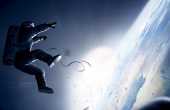Kayleigh Hall
Film watcher, animal lover, girl from that Marillion song.
Junior Contributor II
- Lurker
- ?
- Articles
1 - Featured
0 - Comments
8
- Ext. Comments
6 - Processed
1 - Revisions
1
- Topics
2 - Topics Taken
0 - Notes
3
- Topics Proc.
0 - Topics Rev.
0
- Points
193 - Rank
X - Score
92
Latest Articles
Latest Topics
Media Literacy and the Meta-NarrativeDiscuss the rise of self-referential, "meta" narratives in contemporary film and television, and the links to the rising media literacy of consumers. Considering the introduction of media education in schools, particularly on English syllabuses, how has the audience's understanding of media conventions and tropes affected the writing of media?
|
Horror in your Front RoomHow does the experience of watching horror film differ when watching on streaming and on-demand services at home? With the rise of Netflix originals, is there still a place for cinema screenings of these films? In particular with the genre of horror, how much is the setting of your viewing an important part of the experience?
|
Latest Comments
| 5 Reasons to Watch Gilmore Girls | |
I think the problem with sex in video games is where the cut-off is with player involvement. Video games revolve around player controlled actions: walk here, hit this, kill him. You can choose to seduce other characters and there can be sex scenes, but I’m unsure whether sex in games could ever be, how’d you say, interactive, without seeming exploitative. On the other hand, it can feel exploitative now because of its reliance on cut-scenes and pre-determined action. It’s an interesting and difficult topic. | Game of Thrones as a Game: A look into Simulated Sex |
Great article. | Time Jumps in How I Met Your Mother: Why We're Not Buying It Now |
I found this article really interesting, because I know that I am personally guilty of disliking Girls primarily because I perceive it to be very narcissistic. | A New Breed of Auteurism in HBO's 'Girls' |
You are very welcome! I really hope you enjoy the film. | Sound and Silence in 'Gravity': In Space, No One Can Hear You... |
I’ve always been disappointed by American Horror Story simply because I feel like it could do so much more! As a particularly avid fan of macabre history and folklore, I wish AHS would delve more into the dark history of American than it does. Rather than truly interesting explorations of seedy horrific history, every series has felt like a soap opera which is constantly trying to shock me. Its approach to this is strange, as, if other people’s reactions are anything to go by, apparently people do find this show very unsettling. I must be a hardened weirdo because it all actually feels very tame to me! It feels like every time there is a strange sexually-charged scene or bit of gore that everybody on screen is relishing just how strange and scary (!) they’re being. I think so much of the writing in the series is problematic. You mention that it could feel like fan-fiction and I completely agree. I felt like there were certain plot turns which only served some silly little childish plot and completely betrayed any attempt at character development beforehand. Case in point: two characters, recently brought back from the dead, and previously both sexually abused – Madison, being gang-raped, and Kyle, abused by his mother – meet each other and decide that the ultimate way they must express their sadness is to instantly start boning. So much for addressing their previous issues. Instead, it just served to give more meat to an already silly love triangle plot line. I feel like I’ve already ranted far too much about the show so I’ll definitely stop now. Great article. | 5 Reasons the Spell Wore Off on American Horror Story: Coven |
Well, thanks for your thoughts, we can’t all agree! The thing that struck me most about the use of sound in the film wasn’t any particular innovation with the score but rather how the sound-scape was particularly important in demonstrating Ryan’s journey, and how it was an appropriate representation of her distance from, and return to, Earth. The use of silence, as opposed to sound, impressed me. The “typically bombastic” score, as you describe it, served its purpose during action scenes, as you will find in any blockbuster film. But it also served to contrast harshly with the moments of sudden silence. Personally, I found it to be quite emotionally evocative and was one particular thing I came away from the film having especially enjoyed. | Sound and Silence in 'Gravity': In Space, No One Can Hear You... |
Great article; I especially want to thank you for that blast from the past with the PlayStation start-up music, oh the memories! | The Role of Music in Videogames |

I loved Gilmore Girls, but unfortunately whenever I re-watch the series now I find myself disliking Rory more and more.
Maybe it’s because I know how her character develops into a privileged tantrum-throwing (yacht stealing?!) brat towards the later series and it really casts some shade on her early characterisation. Not to mention the fact that Rory never has to answer for any of her actions and still gets everything she wants falling into her lap, because everybody in the entire on-screen world is inexplicably head-over-heels in love with her.